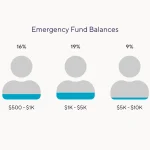
Savings bonds are a safe way to invest your money over the long term. These non-marketable securities are issued by the United States Department of Treasury and are backed by the full faith and credit of the United States government. You can invest in these bonds with confidence as they earn compound interest and are tax-exempt.
U.S. savings bonds are non-marketable securities
If you are looking for a safe investment, you should consider U.S. savings bonds, which are debt securities issued by the U.S. Department of Treasury. These bonds are the safest type of investment, as they are backed by the full faith and credit of the United States government. You can buy them at financial institutions or online. The best part is that you can buy as much as $10,000 worth of a particular series during a calendar year.
Another major benefit of non-marketable securities is the stability of ownership. Investing in non-marketable securities allows you to receive higher returns and are less risky than marketable securities. The downside of these investments is that you can’t sell or transfer them after you buy them. Because of this, it’s important to invest only with disposable income.
Non-marketable securities come in many different forms. The most common types are government savings bonds, rural electrification certificates, and private shares. Because they cannot be traded on the open market, investors are often attracted to these types of investments, because they don’t have to worry about losing their money in the process. In addition, non-marketable securities have long-term maturities and are often backed by the government. Since they cannot be sold on the secondary market, their prices are generally stable.
They earn compound interest
Savings bonds earn compound interest, so they will increase in value as time goes by. These bonds typically have a maturity of 15 to 30 years. If you choose to redeem the bond before the maturity date, you will receive the face value of the bond, plus interest, plus you’ll be taxed at the ordinary rate on the interest.
Savings bonds are low-risk investments because they are backed by the U.S. government, so they carry little risk compared to stocks. Savings bonds also earn compound interest, so the money you’ve invested will continue to grow even when interest rates fall. A savings bond’s interest is paid every six months, which means that you’ll continue to earn interest over time.
Compound interest works by adding the interest you earn on an investment to the principal amount. For example, if you invested $5,000 and earned $10 in interest, your next interest calculation will be based on the new $5,010. Some bonds even allow you to buy up to a $10,000 bond at a time.
They are a safe long-term investment
You can get safe returns on savings bonds if you purchase them from an established financial institution. They are backed by the government, which means that you will have no problem paying them back. However, the downside to these investments is that you can’t buy them from an institution that isn’t in the government. You will be limited to purchasing a maximum of $10,000 worth of these bonds in any one year.
Although many financial markets are reacting negatively to rising inflation, savings bonds offer the potential of a safe long-term investment. With yields of up to 9.62%, they are better than most banks and credit unions. They also won’t lose their value. As a result, they may be a good option for beginning investors.
Another risk of bonds is default. If the company that issued them goes bankrupt, you can lose the money. If the company doesn’t make its payments, the courts will decide how much you get. In many cases, the court will award you a fraction of the amount you invested in the bond. Interest rates also fluctuate, so it’s important to check the maturity date of the bond you are considering.
They are tax-exempt
The tax-exempt treatment of savings bonds is somewhat complicated, depending on how and to whom the bonds are owned. For example, if Jill holds a savings bond that she owned from 2003 to 2007, and then passes it along to her daughter Amy, she will have to pay taxes on the interest that she accrues after 2007. The good news is that most bond owners will be able to defer paying taxes on their interest until they redeem the bonds.
While the interest on savings bonds is taxable, the Treasury Department defers reporting of the interest until the bonds reach maturity. At that time, interest is reported to the IRS on IRS Form 1099-INT. However, savings bond interest is subject to multiple types of taxes, including federal income tax, federal gift taxes, and state inheritance taxes.
As long as you don’t spend the money before the bond matures, the interest on your savings bond is tax-exempt. If you use it for qualified higher education expenses, the interest earned on a savings bond will not be taxed. The TreasuryDirect Savings Bond Calculator helps you figure out how much interest you’ve earned for the year so far.



